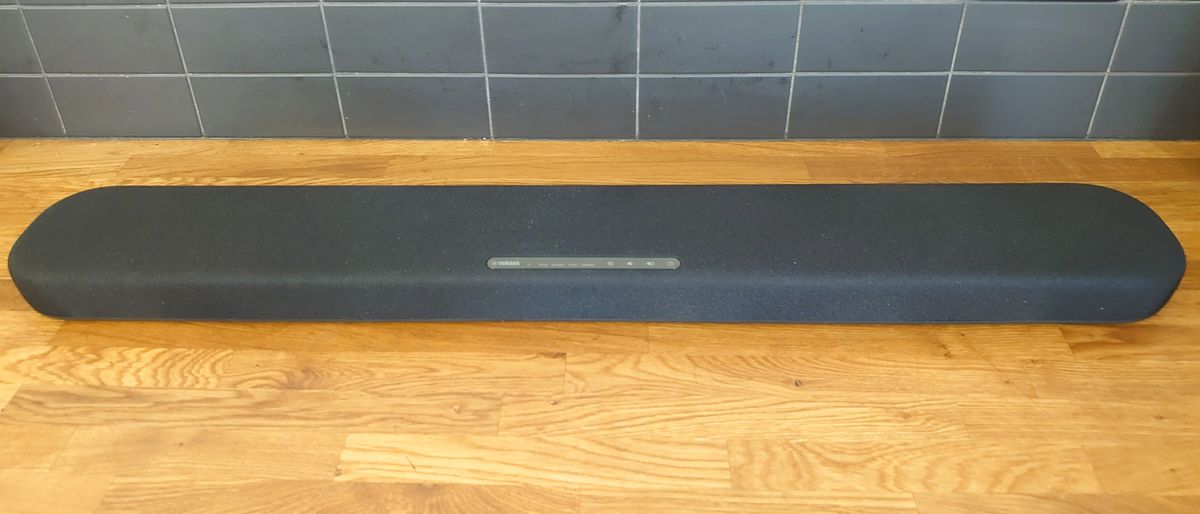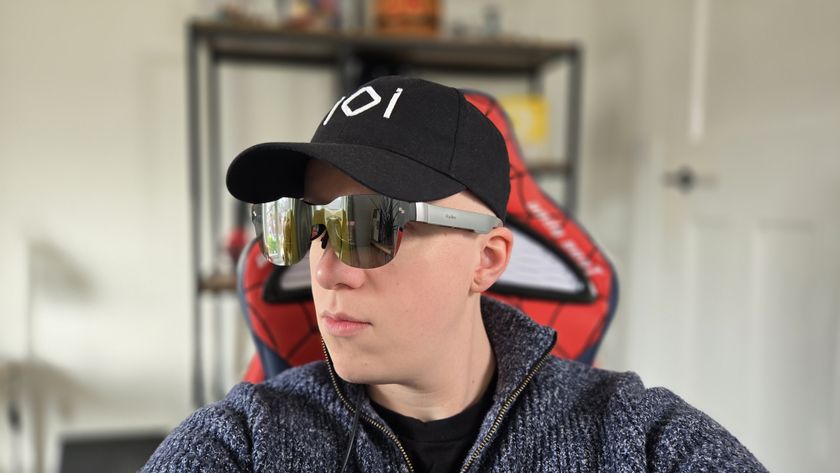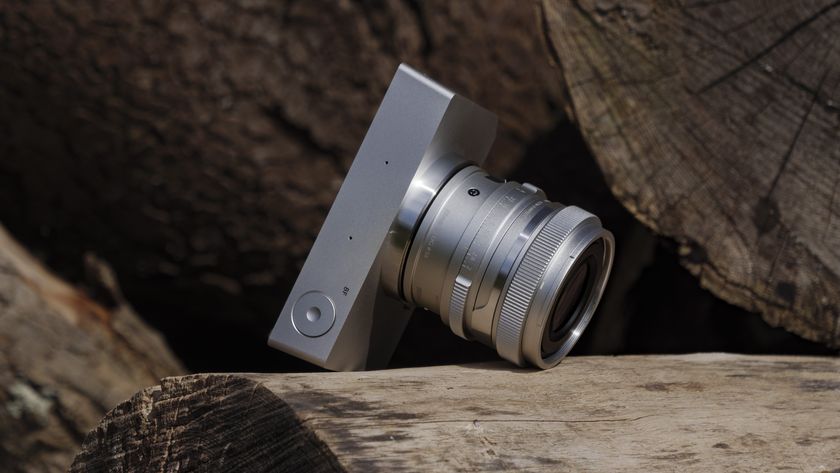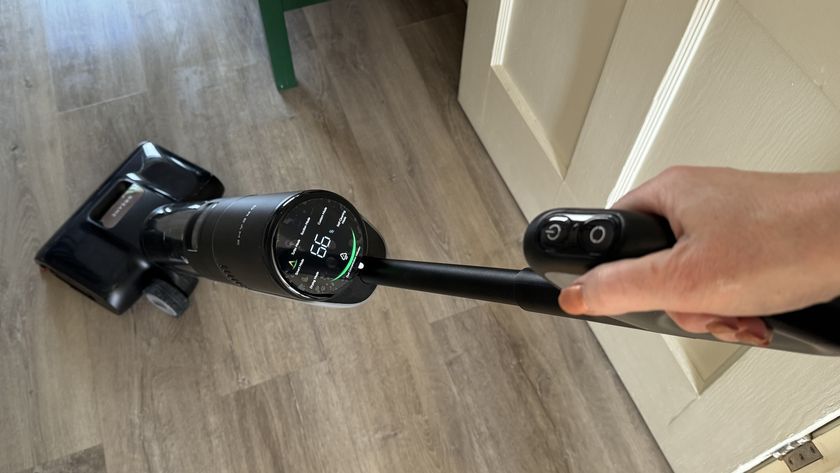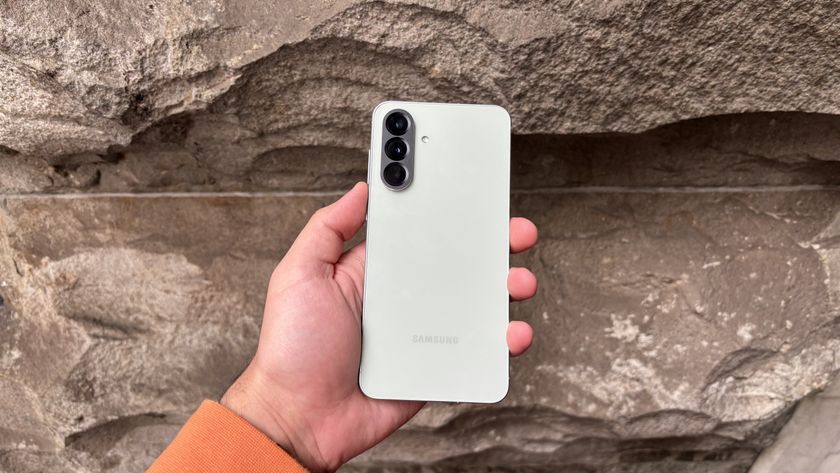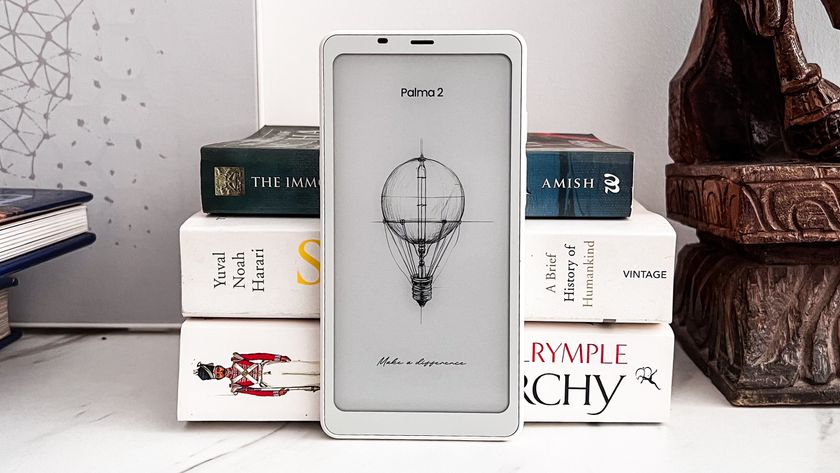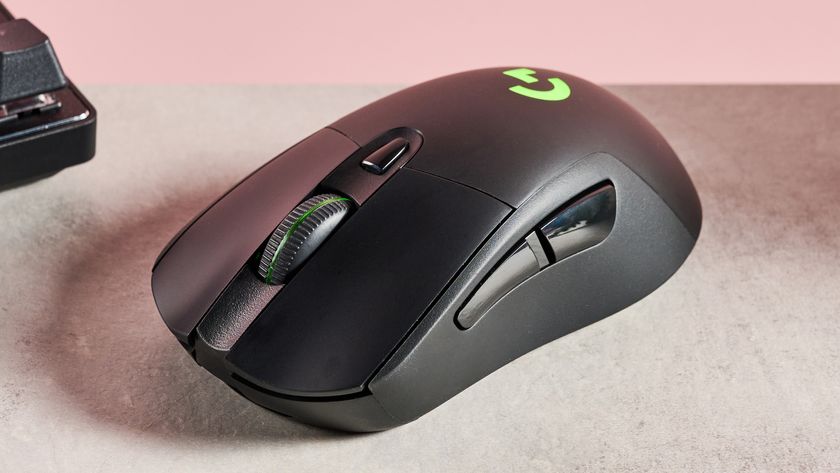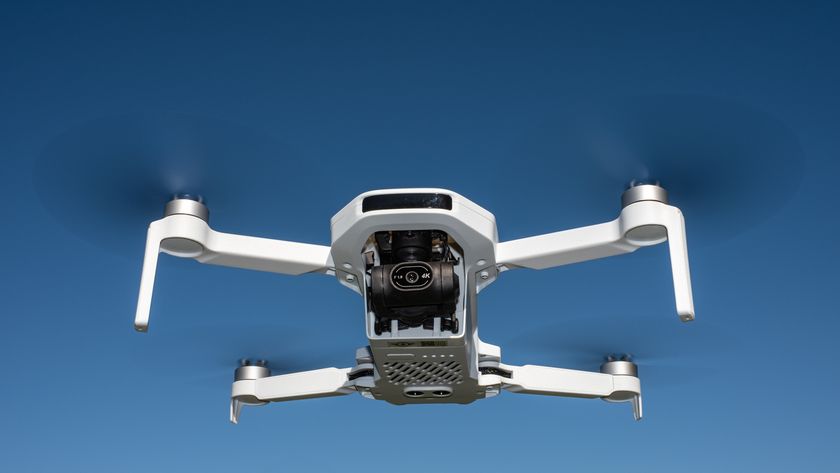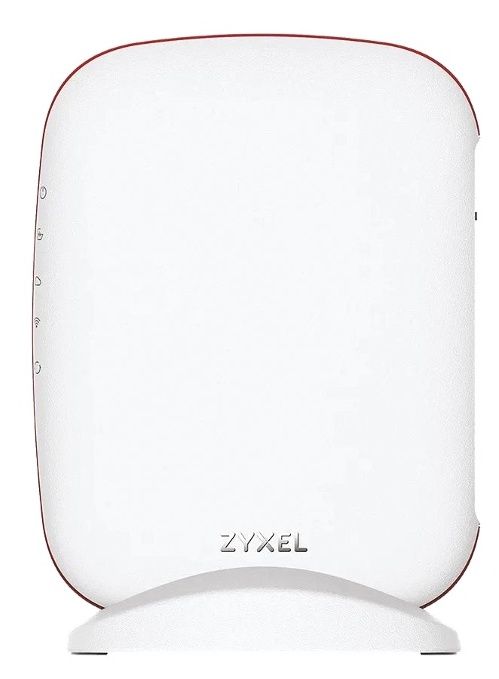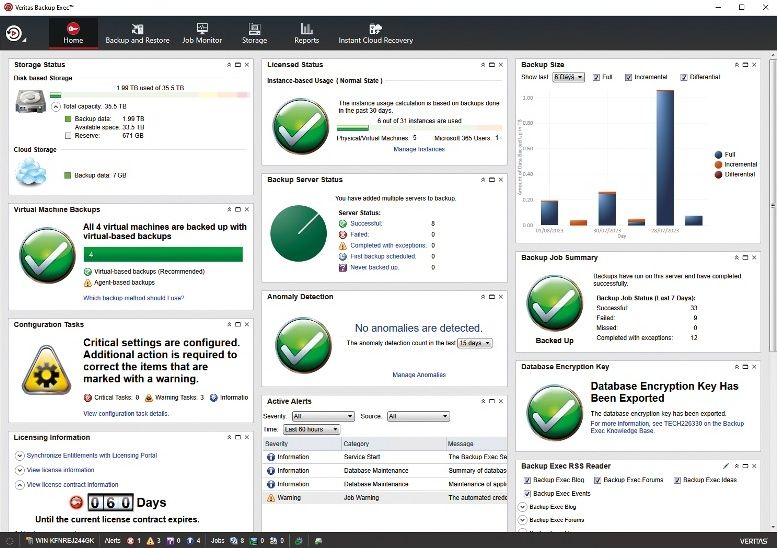TechRadar Verdict
If all you want from your reasonably compact, reasonably affordable soundbar is to put the native sound of your TV to shame, you’ve come to the right place.
Pros
- +
Good spec includes DTS Virtual:X 3D sound
- +
Usefully compact and nicely finished
- +
Capable of direct, expansive sound
Cons
- -
One-note bass reproduction
- -
Predecessor was even less expensive...
- -
Some EQ presets less effective than others
Why you can trust TechRadar
One-minute review
Yamaha has plenty of expertise where soundbars are concerned, and in updating its entry-level models it’s reasserted its proficiency. Here’s a tidily proportioned, expertly finished soundbar that’s able to put a rocket up the sound quality most mainstream TVs are capable of.
Wired and wireless inputs are available, and the Yamaha SR-B20A Sound Bar is able to deliver DTS Virtual:X soundtracks, which is a definite step towards the sort of ‘3D’ surround sound that’s all the rage among more expensive soundbars at the moment. It’s also configured to be equally happy sitting flat on a TV stand or hanging on the wall beneath a television.
And once you’ve decided where it needs to be positioned, the Yamaha is capable of impressively large, well-defined and absorbing sound. It’s particularly adept through the midrange - which, given that movies tend to be mostly dialogue, is undoubtedly a good thing. Up at the top of the frequency range has plenty of bit and attack, too, and where the height and width of the soundstage are concerned it leaves pretty much every real-word TV for dead.
There are some problems lurking at the bottom of the frequency range, though. The Yamaha’s two biggest drivers deal with bass, and they’re the recipients of half of the SR-B20A’s 120 watts of power. But while that translates to plenty of low-end presence, the Yamaha is a bit of blunt instrument where bass is concerned - there’s not much variation in the way it serves up the bottom-end stuff, and as a result the SR-B20A is a monotonal and slightly wearying listen in this respect.
That’s the only significant fly in the ointment, though. In every other respect the Yamaha SR-B20A is worthy of extremely careful consideration.
Price and release date
- New for 2020
- Priced at $179/£249 (no AU pricing yet)
- Replacement for the Yamaha YAS-107 from 2017
The Yamaha SR-B20A is on sale now, priced at $179/£249. Broadly speaking, it’s a replacement for the well-regarded Yamaha YAS-107, which launched in late 2017 at £169 - so the price has risen a little, while the specification has been finessed.
At its new $179/£249, however, the Yamaha lines up against some fairly capable alternatives from the likes of JBL and JVC - but if anyone knows what’s what when it comes to reasonably affordable soundbars, it’s Yamaha.
Australian pricing is yet to be confirmed, but our Aussie friends will obviously be hoping for something along the lines of the American positioning rather than the rather more punishing UK alternative.
Design
- Surface- or wall-mount
- Touch-, remote- or app-control
- DTS Virtual:X and Dolby Audio
Yamaha wants the SR-B20A to be as easy to position and as discreet in situ as possible - and at a trim 53 x 910 x 131mm (h x w x d) it’s certainly not going to cause too many problems where siting is is concerned.
Those dimensions refer to when it’s sitting on its integrated little rubberised feet, of course. If you decide to use the keyhole wall-mounts to hang it beneath your wall-mounted television, it becomes 131 x 910 x 53mm - but either way, this one of the tidier soundbars you can buy, at any price.
The Yamaha is able to work in either orientation because of its driver layout. Viewed in its wall-mounted position, the top of the soundbar features a pair of 75mm bass drivers and two 55mm midrange drivers, one of each towards either end of the ‘bar. There are also two 25mm tweeters, facing downwards. Obviously if the SR-B20A is sitting on its feet, those tweeters face forwards and the other four drivers upwards.
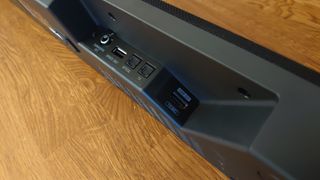
Either way, though, the Yamaha is arranged in such a way that it has the best chance of delivering a suggestion of ‘3D’ sound. Of course, this soundbar is not expensive enough, big enough, or fitted with sufficient drivers or processing power to deliver a true Dolby Atmos experience - but as well as being certified as a ‘Dolby Audio’ soundbar, the SR-B20A is able to deal with DTS Virtual:X soundtracks. In theory, then, it should be able to get halfway towards a Dolby Atmos-style spatial surround-sound effect.
Those drivers are powered by a total of 120 Class D watts, a solid half of which is split between the two 75mm bass drivers. Connectivity is available via HDMI ARC, a couple of digital optical sockets and Bluetooth 5.0 (which is handy if you want the Yamaha to do duty as a music player too). There’s also a pre-out for a subwoofer, just in case two 75mm drivers power by 30 watts each sounds a bit too tentative.
Given that it’s a fairly focused device, there’s isn’t an awful lot of control that needs exercising - and between the small, simple and rather hard-feeling remote control handset and Yamaha’s well-realised Sound Bar Remote app, there’s nothing you can’t do. Input selection, volume control, EQ presets and audio options (including the party-piece ‘3D surround’) are all available here. The SR-B20A also has a very brief display on its widest surface, featuring some rather recalcitrant touch-controls.
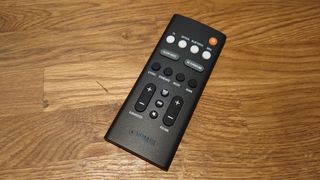
Audio performance
- Full-scale, quite dynamic sound
- Punchy but monotonal low frequencies
- ‘3D surround’ is pretty impressive (but it’s no Atmos)
If all you want from your reasonably compact, reasonably affordable soundbar is to put the native sound of your TV to shame, you’ve come to the right place. Attached via HDMI cable to the ARC output of a very decent Panasonic 4K HDR LED TV from 2019, the SR-B20A needs next-to-no time to make the Panasonic sound thin and feeble.
Listen to a movie soundtrack using the ‘standard’ EQ preset and there’s altogether greater focus, balance and poise to the overall sound: low frequencies, unsurprisingly, are much more assertive, while there’s a stack more detail and nuance available through the midrange, too.
At the top of the frequency range there’s a deal more attack and substance - though it’s all pretty well judged and never threatens to get out of hand, even at significant volumes. The general sound is more dynamic, more open and comes far closer to matching the quality of the images the Panasonic is serving up.
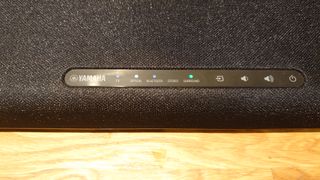
The ‘movie’ preset delivers a more expansive, but less rigorously focused sound - but it’s with the ‘3D surround’ setting engaged that the Yamaha really sounds like the money’s-worth. It’s not a substitute for a (naturally more expensive) Dolby Atmos soundbar, but the SR-B20A is capable of a taller, deeper and wider sonic presentation that seems feasible. The soundstage is convincing, and effects are steered around it impressively. Everything that happens is happening in front of you, of course, but there’s considerable width and height to the sound the Yamaha delivers.
In terms of tonality, though, it’s a slightly more qualified success. Detail levels in the midrange help make dialogue distinct and characterful, while the top end has enough substance to prevent treble sounds becoming spiky. The bottom of the frequency range, though, is quite ‘one-note’, with precious little variation in bass sounds. There’s no shortage of information about texture, to be sure, but the Yamaha lacks expression at the bottom end - and bass just thumps along pretty mindlessly as a result. It’s a trait that becomes all the more pronounced when a) listening to music and/or b) listening at higher volumes.
Should I buy the Yamaha SR-B20A Sound Bar?
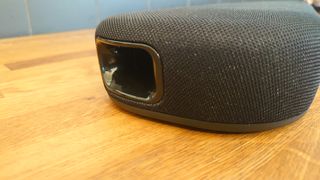
Buy it if...
You like to keep it neat
The Yamaha’s both compact and beautifully finished - so it won't stick out no matter where you position it.
You don’t want to get too hands-on
There are touch-controls on the SR-B20A, sure, but you’re much better off using either the remote control handset or the Sound Bar Remote app.
You enjoy dialogue-heavy movies
The Yamaha’s midrange is arguably the star of the show - it’s quite lavishly detailed and, as a result, packed with character.
Don't buy it if...
You’re expecting Dolby Atmos sound
The SR-N20A sounds much taller and wider than your TV alone can manage - but you’ll never confuse it with actual object-based surround sound.
You value low-frequency expression
A lot of the Yamaha’s good work is undone by its one-note bass response.
You want an authentic bargain
Just because this is one of Yamaha’s most affordable soundbars, that doesn’t mean you can’t pay quite a lot less than this to boost your TV’s sound.
- Don't miss our guide to the best soundbars available now
Simon Lucas is a senior editorial professional with deep experience of print/digital publishing and the consumer electronics landscape. Based in Brighton, Simon worked at TechRadar's sister site What HiFi? for a number of years, as both a features editor and a digital editor, before embarking on a career in freelance consultancy, content creation, and journalism for some of the biggest brands and publications in the world.
With enormous expertise in all things home entertainment, Simon reviews everything from turntables to soundbars for TechRadar, and also likes to dip his toes into longform features and buying guides. His bylines include GQ, The Guardian, Hi-Fi+, Metro, The Observer, Pocket Lint, Shortlist, Stuff T3, Tom's Guide, Trusted Reviews, and more.
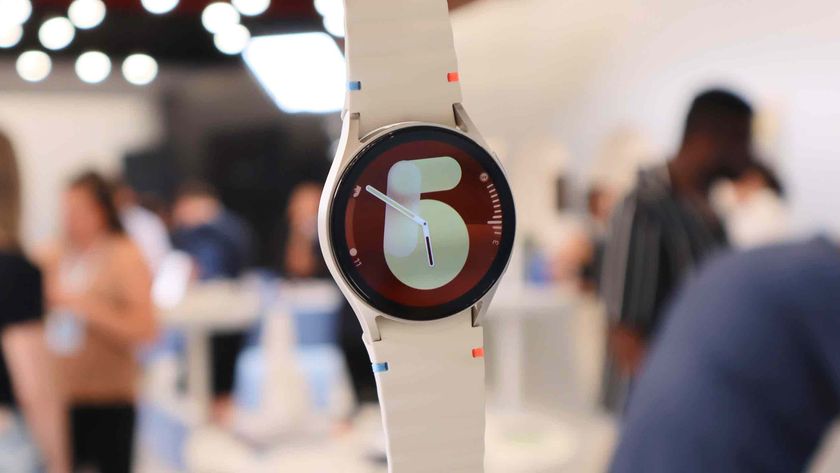
New Samsung Galaxy Watch 8 leak again confirms return of the Classic model
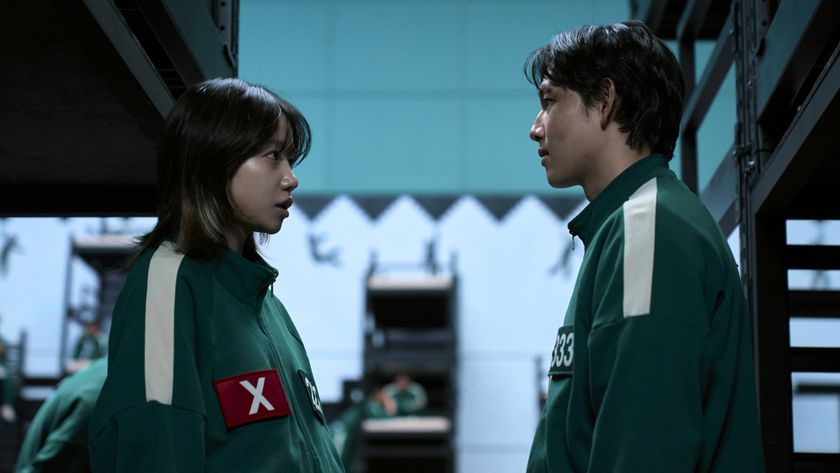
Netflix movies and shows are now available in over 30 languages – here's what you need to know

Google’s new Battery Health assistance will intentionally shorten your Pixel 9a’s battery life – and you can’t turn the feature off
